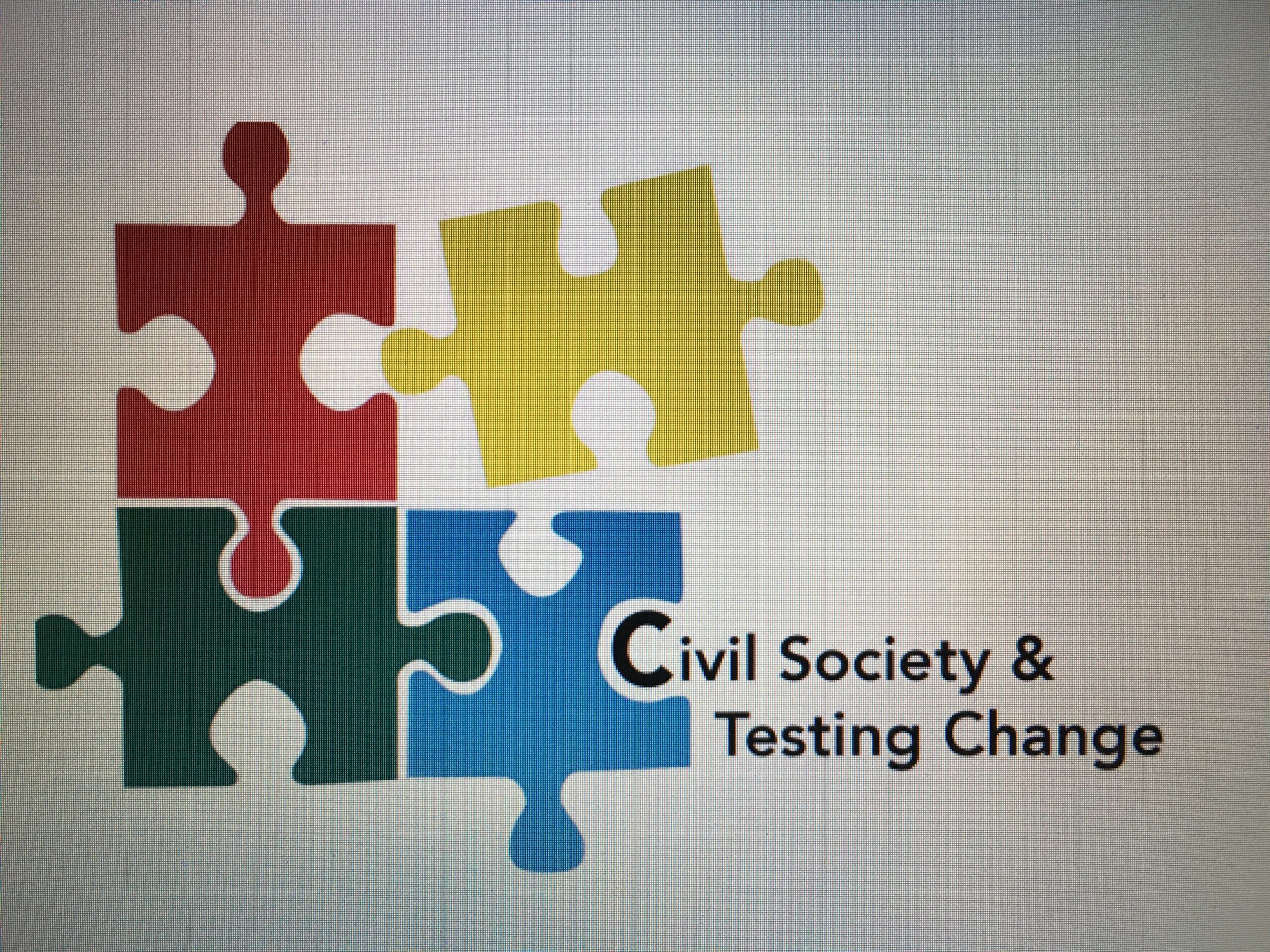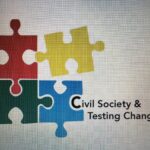As many of you who have been readers of this blog know, I have written a number of times over the past years about the Civil Society and Testing Change project (later shortened to Testing Change project) that I started in 2014 with a small group of colleagues from around the world. We were looking to fill a missing gap in our approaches to significant change and be one piece of the puzzle (hence the puzzle logo). We had a collaborative approach, trying to work with as many others as possible in our ‘shared space’ and sharing our learning freely. It was the learning through a multi-year testing period, crucial to significant change, that seemed to be missing and became our focus.
In order to again fill a niche not well covered, the profile of our target groups was developed as organizations approximately 10-30 years old, medium sized, with a leadership committed to staying innovative, and enough staff capacity to try some new things. It was felt that this group could most benefit from testing new ideas within peer groups.
We wanted to look at the range of issues that civil society leaders need to navigate to re-orient their approaches in order to increase the impact of their efforts. The Steering Group thus identified a number of issues we could focus on. The original list included new approaches to assessing impact, multi-stakeholder collaboration, new operational models, integrating youth into organizational decision-making, new leadership skills and approaches and new models of resources for change. We started a working group when we had lead organizations and in the past 8 years we have had three working groups, on youth integration, impact assessment and leadership.
Partially due to funding constraints and partially to be more globally inclusive, we have worked primarily virtually. We had two in-person roundtables (coordinated with key participants being together for other meetings) to start the youth engagement and impact assessment working groups; and one in-person meeting for the full project in 2019.
The Steering Group membership has changed a number of times over the past 10 years (with one member staying with the group the full time!). Approximately 12 organizations (fitting the profile) have participated in the community with other participants from NGO support organizations and academia as well.
The project was started as a project and not a new organization as it was not intended to go on forever. After almost a decade it seemed to be the time to wind it down and look for ways to share our lessons and look to next opportunities for collaborative exploratory work. Our wind down has included a virtual roundtable this past November (a format that has worked well for us over the years) to share some of our take-aways. Some of the learning shared during this roundtable included:
- There is a need for ‘pioneers’. Focusing attention on ‘significant’ change efforts is now more common but at the time the Testing Change project started 10 years ago it wasn’t as ‘mainstream’. Paving an exploratory or unchartered path can be challenging and requires persistence.
- We were able to bond virtually. It is not easy, but it is doable and may be a good model of how to do this which we may need to do more of going forward.
- Holding space to discuss change initiatives with peers is critical to learning and adaptation, but it is hard to find the time to do. Collaborative projects like this provide the space for reflection that day-to-day work doesn’t allow for and it needs to be made a higher priority. . (For example, the leadership of CIVICUS’ youth program shared that the Testing Change collaboration was an important partner to CIVICUS in its youth engagement initiatives).
- It is intentional work to lead and adapt ones own approaches. Learning has to be personal, organic and agile, but leadership can be lonely and having peers to share with in a more structured way can give you the support you need to continue on. A diverse group of peers can bring in different perspectives and lead to seeing new possibilities.
- Change is a continuous process. Learning together can help us get a better sense of how our actions/interventions (as practitioners or donors) are making a difference.
- Effective organizational and systemwide change needs to be supported by high level commitment (that is sustained through leadership changes), accountability to multiple stakeholders, and resources to make the time for change initiatives.
- In multi-year work you need to have ways to bring people in and out of the process. A practice of regularly sharing notes and having them in an easily accessible place can help with this.
- Collective ownership for a collaborative initiative can be hard to develop. Is it because of competition for funds? Constraints with time? Is it not valued enough? We don’t have good models? This calls for additional exploration to help reduce the obstacles to collaborative initiatives.
- More resources for collaborative efforts are needed to help make these type of efforts a priority. In collaborative initiatives someone needs to have as their focus keeping the momentum and priority level, and practitioners need to have the time they spend on these efforts valued. How do we better incentive collaborative efforts / working together towards a common purpose?
At the time we started the project there were not many initiatives like this that were global and virtual across issue silos. In the intervening years we have seen similar collaborative efforts emerge, and some wind down. We have gotten better as a global community at starting and nurturing these communities of practice, with less focus on sharing our learning across issue areas, and how to wind them down and save the knowledge generated as an initiative ends. Some ‘next stage’ exploration is looking at lessons around winding down and ideas for longer-term sharing. Future blogs will look at learnings from some of these explorations.
And finally, a huge thank you to the leaders who have helped nurture and steer this project over the years including (but not limited to) Anabel Cruz, Blair Glencorse, Janet Mawiyoo, Magda Mook, Eddy Perez, Michael Silberman, Danny Sriskandarajah, Amy Miller-Taylor, Elisa Novoa and Alison Calrman, and all of those (too many to list) who participated in working groups and roundtables or otherwise supported the project through your insights over the years.

